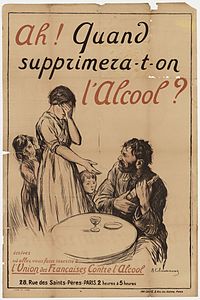
Photo from wikipedia
How we perceive the world is not solely determined by what we sense at a given moment in time, but also by what we processed recently. Here we investigated whether… Click to show full abstract
How we perceive the world is not solely determined by what we sense at a given moment in time, but also by what we processed recently. Here we investigated whether such serial dependencies for emotional stimuli transfer from one modality to another. Participants were presented a random sequence of emotional sounds and images and instructed to rate the valence and arousal of each stimulus (Experiment 1). For both ratings, we conducted an intertrial analysis, based on whether the rating on the previous trial was low or high. We found a positive serial dependence for valence and arousal regardless of the stimulus modality on two consecutive trials. In Experiment 2, we examined whether passively perceiving a stimulus is sufficient to induce a serial dependence. In Experiment 2, participants were instructed to rate the stimuli only on active trials and not on passive trials. The participants were informed that the active and passive trials were presented in alternating order, so that they were able to prepare for the task. We conducted an intertrial analysis on active trials, based on whether the rating on the previous passive trial (determined in Experiment 1) was low or high. For both ratings, we again observed positive serial dependencies regardless of the stimulus modality. We conclude that the emotional experience triggered by one stimulus affects the emotional experience for a subsequent stimulus regardless of their sensory modalities, that this occurs in a bottom-up fashion, and that this can be explained by residual activation in the emotional network in the brain.
Journal Title: Multisensory research
Year Published: 2021
Link to full text (if available)
Share on Social Media: Sign Up to like & get
recommendations!